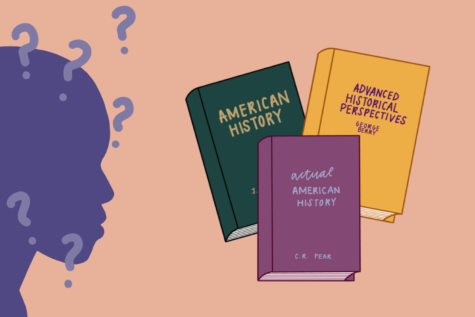OPINION | Can neutral education exist?

Recently, multiple states have implemented or may implement bills that restrict what teachers can teach. One from Tennessee bans educators from teaching their students that “An individual, by virtue of the individual’s race or sex, is inherently privileged, racist, sexist, or oppressive, whether consciously or subconsciously.” Similar clauses are seen in bills from Texas, Iowa and Oklahoma.
Given the recent controversies surrounding how race is taught in schools, one could view this as an escalation of a debate that’s been in the public sphere for some time. But instead of banning these topics, is it possible to discuss race in America in a neutral manner?
The short answer is “yes, but.”
Neutrality, in the context of education, seems appealing on the surface. When one teaches about a historical event such as the invention of the electric lightbulb, there isn’t an abundance of sociopolitical commentary needed to understand its significance. Particularly in the K-12 system, where much of history is taught as memorization, political commentary does not take priority. There is no stance one takes when memorizing dates.
However, this neutrality does not extend to all things in history, the same way it might to math or grammar. There are certain things discussed in history which require open condemnation. Among those things is racism, which makes these bills rather problematic. The vague wording of the clause in question is clearly meant to prohibit teachers from discussing white privilege, the idea that society does not punish white people for their skin color in the way that it punishes Black or Brown people.
In my opinion, this law seeks to enforce “neutrality” where neutrality has no place. In some things, there is a clear right and wrong — education about slavery, for example, must inevitably draw attention to the atrocities that enslaved people were subjected to. There is no neutral way to discuss the torture and anguish that an enslaved person faced; even dry and factual descriptions of a slave ship invoke an emotional response. In the same way that a truthful discussion of slavery is not neutral, a truthful discussion of race in America can never be neutral.
As such, preventing educators from discussing white privilege only reinforces that very privilege. It prevents a factual discussion of race, of the different experiences one may have due to their skin color, and replaces it with a false narrative where neither privilege nor bias exist. By extension, it reinforces the belief that the current racial state of being in the United States is fair and balanced. That, following a vaguely progressive movement in the past, sex and color ceased to alter one’s experience in the United States, which is factually incorrect.
These attempts at neutral education sacrifice accurate education for comfortable silence.
Your donation will support the student journalists of Tulane University. Your contribution will allow us to purchase equipment and cover our annual website hosting costs.



